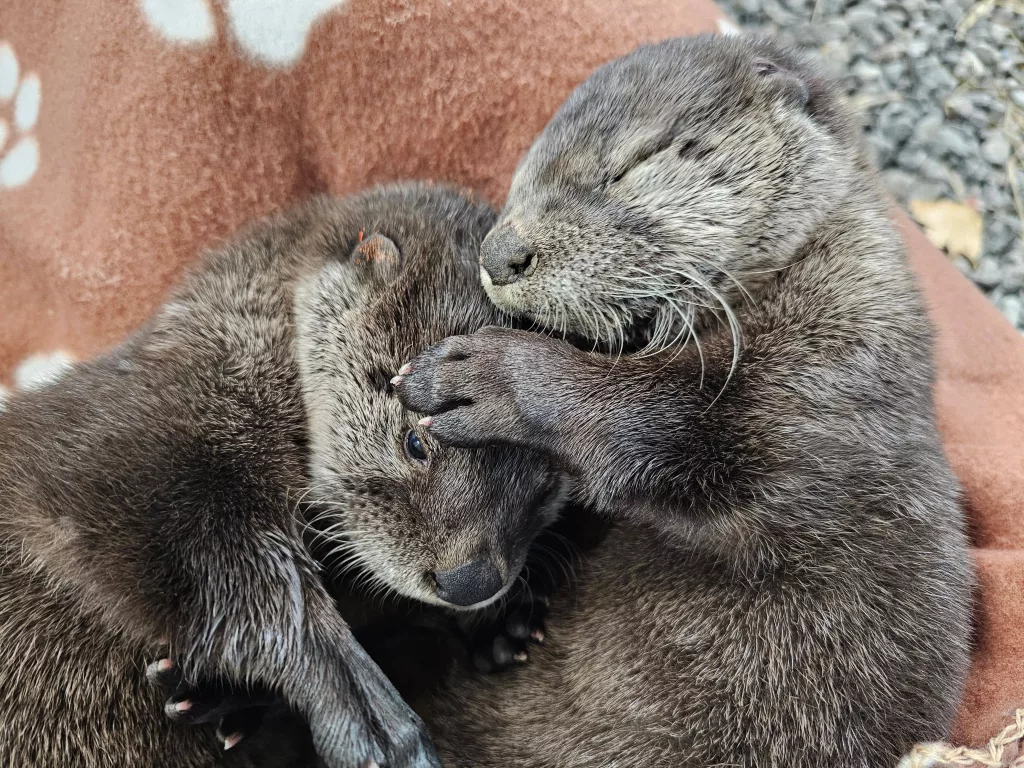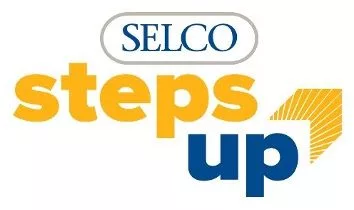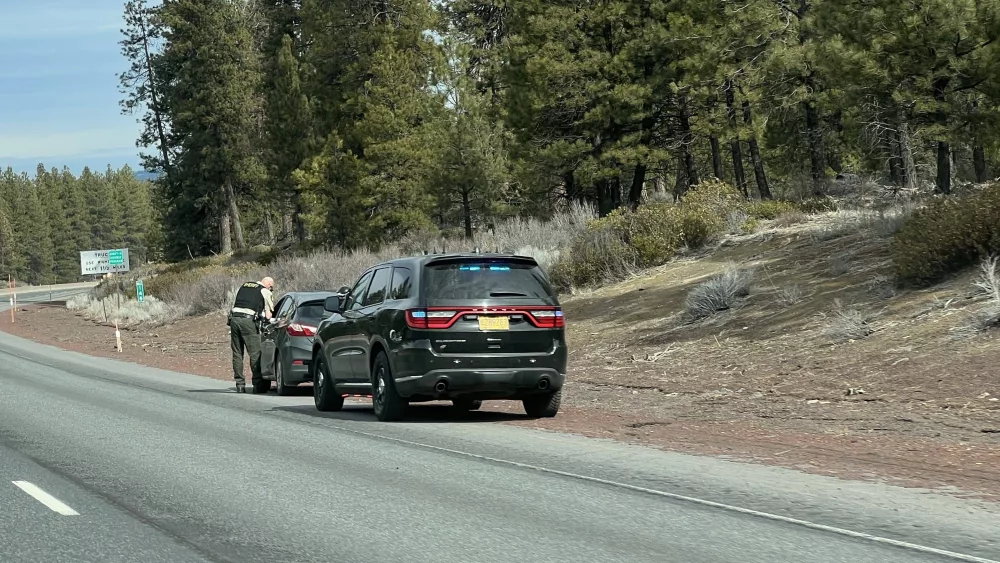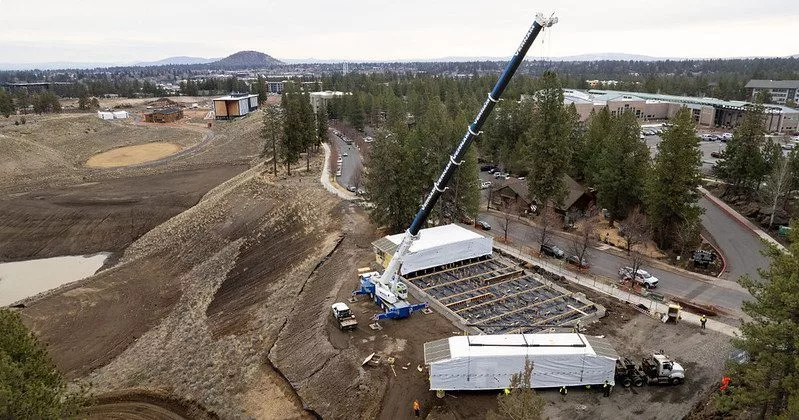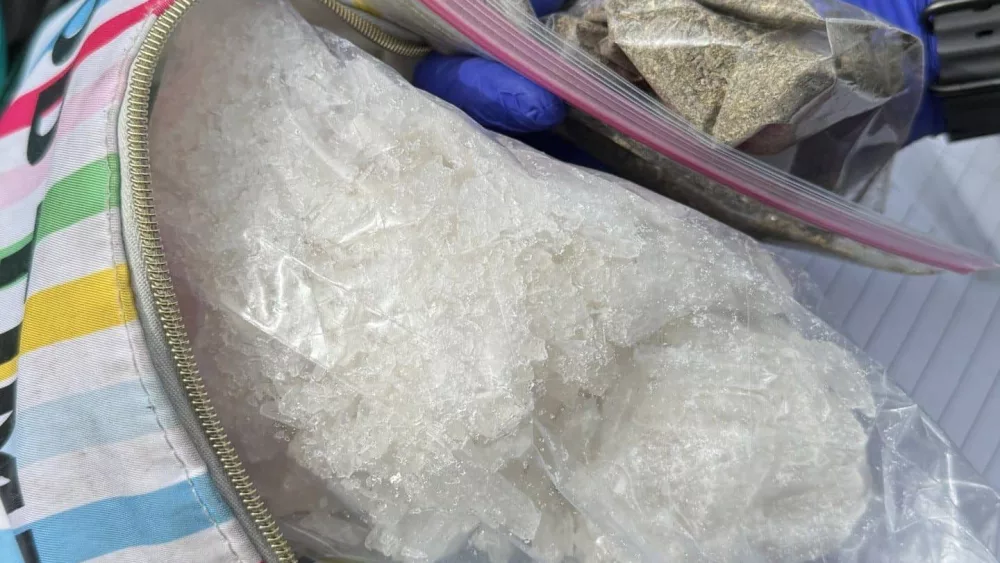Central Oregon’s wildlife hospital, Think Wild, is rehabilitating two orphaned North American river otter pups after a park ranger found them alone and in need of medical care in Cove Palisades State Park last week. These are the first river otters to receive care from Think Wild since the wildlife hospital’s opening in 2020.
Oregon State Park Ranger, Tyler Banks, called Think Wild’s hotline on Wednesday, June 26, after finding three river otter pups in a ditch along the road. The three pups were very lethargic, and one passed away shortly after they were found. The ranger called Oregon State Police Wildlife Officer, David Mackenzie, who transported the two surviving otter pups to Think Wild.
Upon intake, Think Wild rehabilitation staff found the two female infant otter pups to be lethargic and moderately dehydrated. They had dirt on their eyes and noses and plant seeds stuck in their fur. Staff administered fluids and antiparasitics and performed a full examination of the otters to determine their age (5-6 weeks old), weight (979 grams and 1120 grams), and tooth development, and to establish protocols for their care.
“River otters are highly intelligent and can easily become habituated to humans if proper precautions are not taken,” said Pauline Hice, Think Wild Director of Wildlife Rehabilitation. “Animals that become comfortable around humans cannot safely or humanely be returned to the wild, so we are taking extreme measures to ensure the otter pups do not associate humans or their scent with food or safety. Only senior rehabilitation staff treat and feed the patients and wear camouflage suits, boots, and masks.”
Unfortunately, Think Wild does not have an enclosure with the appropriate infrastructure for the long term rehabilitation of orphaned aquatic mammals like river otters and beavers. These animals require 8 months to 2 years of rehabilitative care when rescued as orphans. Their enclosures must include a pool with a filtration system, chew and dig-proof metal caging, and other species-specific enrichment and safety features. In fact, there are no facilities east of the Cascades with appropriate enclosures for river otter or beaver rehabilitation.
Fortunately, once the otter pups are stabilized, Think Wild has received approval from the Oregon Department of Fish and Wildlife to transfer the otter pups to the Wildlife Center of the North Coast in Astoria, Oregon, where they will be rehabilitated until they are old enough for release back to the wild. At that point, the otters will be transferred back to Central Oregon for release.
Think Wild is accepting donations and naming sponsorships to build an aquatic mammal enclosure on their 4-acre campus for the rehabilitation of otters and beavers. The organization has enclosure guidelines, blueprints, and care protocols, but needs funds to start the estimated $35,000 project. If you would like to help Think Wild build the first and only facility to rehabilitate rescued orphaned otters and beavers in Central and Eastern Oregon, please consider making a donation here: https://secure.givelively.org/donate/think-wild/aquatic-mammal-enclosure
“The rescue of these two orphaned otter pups has demonstrated the critical need for local facilities for river otter and beaver rehabilitation,” said Sally Compton, Think Wild Executive Director. “These species are important members of riparian ecosystems, yet American river otter and beaver populations have declined over time due to trapping and habitat loss. Building this new enclosure will allow Think Wild to rescue these keystone species and improve their positive impacts on local wildlife and their habitats.”
###
About Think Wild
Think Wild is a 501(c)3 non-profit organization located in Bend, Oregon. Our mission is to inspire the High Desert community to care for and protect native wildlife through rescue and rehabilitation, outreach and education, and conservation. We provide veterinary treatment and care at the wildlife hospital, staffed by expert wildlife rehabilitation staff, animal husbandry volunteers, and our staff veterinarian. Wildlife conflicts or injuries can be reported to our Wildlife Hotline at (541) 241-8680, which is monitored seven days a week from 8 AM to 4 PM. Visit us online at thinkwildco.org, or on Instagram or Facebook @thinkwildco.


